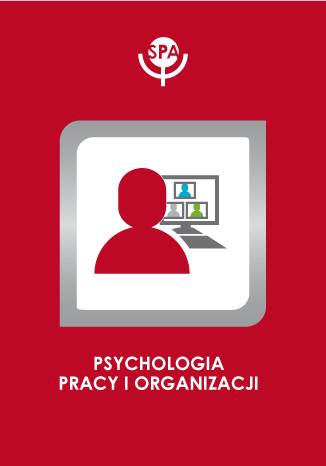Array
(
[id] => 546
[date] => 2019-04-03
[doi] => 10.14691/CPPJ.24.1.115
[title] => Rola zaufania w kształtowaniu zaangażowania w pracę – mediacyjny efekt motywacji autonomicznej
[title_en] => THE ROLE OF TRUST IN BUILDING WORK ENGAGEMENT – MEDIATING EFFECT OF AUTONOMOUS MOTIVATION
[authors] => Małgorzata Chrupała-Pniak, Mateusz Paliga, Anita Pollak, Patrycja Rudnicka
[abstract] => According to JD-R model, every occupation has its own job demands and resources, which, by underlined health impairment and motivational processes, shape work engagement or burnout. Simultaneously, employee’s personal resources are complementary to job resources. The aim of this study was to verify the role of positive orientation, emotional intelligence, autonomous motivation and trust propensity in the relationship between team trust and work engagement. The research had two phases. In the first phase it was established that only positive orientation is a predictor of team trust and work engagement. The second phase confirmed the mediating role of autonomous motivation in the relationship between team trust and work engagement. Similar effect was not observed for trust propensity. In accordance with the assumptions, personal resources (positive orientation) influence the perception and exploitation of job resources (team trust), whereas job resources have motivational potential and lead to higher levels of engagement. The fact resonates with Hobfoll’s (1989) theory as well as JD-R model, in which the possession of one’s resources results in an easier acquisition of new ones.
[abstract_en] => According to JD-R model, every occupation has its own job demands and resources, which, by underlined health impairment and motivational processes, shape work engagement or burnout. Simultaneously, employee’s personal resources are complementary to job resources. The aim of this study was to verify the role of positive orientation, emotional intelligence, autonomous motivation and trust propensity in the relationship between team trust and work engagement. The research had two phases. In the first phase it was established that only positive orientation is a predictor of team trust and work engagement. The second phase confirmed the mediating role of autonomous motivation in the relationship between team trust and work engagement. Similar effect was not observed for trust propensity. In accordance with the assumptions, personal resources (positive orientation) influence the perception and exploitation of job resources (team trust), whereas job resources have motivational potential and lead to higher levels of engagement. The fact resonates with Hobfoll’s (1989) theory as well as JD-R model, in which the possession of one’s resources results in an easier acquisition of new ones.
[keywords] => trust, personal resources, job resources, job demands-resources model, work engagement
[keywords_en] => trust, personal resources, job resources, job demands-resources model, work engagement
[file_path] => /files/articles/2018-24-rola-zaufania-w-ksztatowaniu-zaangaowania-w-prac-mediacyjny-efekt-motywacji-autonomicznej.pdf
[okladka] => psychologia_pracy_i_organizacji.jpg
[rocznik] => Rocznik: 2018 Tom: 24 Numer: 1
[strony] => 115-126
)










 Pobierz pełny tekst
Pobierz pełny tekst



